- Home
- Treatment
Treatment Designed for You.
Get in touch with Absolute Awakenings today and begin your journey to long-term healing & recovery. - What We Treat
Get help today, start your journey!
An Experience in Healing
Get in touch with Absolute Awakenings today and begin your journey to long-term healing & recovery. - About
The Rehab You've Been Looking For
Get in touch with Absolute Awakenings today and begin your journey to long-term healing & recovery. - Tour
- Resources
Don't Wait Another Day.
Get in touch with Absolute Awakenings today and begin your journey to long-term healing & recovery. - Admissions
The Rehab You've Been Looking For
Get in touch with Absolute Awakenings today and begin your journey to long-term healing & recovery. - Contact
(866) 627-0196
3000 NJ-10, Morris Plains, NJ 07950
admissions@absoluteawakenings.com
Schedule a Tour Now
Get in touch with Absolute Awakenings today and begin your journey to long-term healing & recovery.
Begin Your Journey Now
Begin Your Journey Now
- Home
- Treatment
Treatment Designed for You.
Get in touch with Absolute Awakenings today and begin your journey to long-term healing & recovery. - What We Treat
Get help today, start your journey!
An Experience in Healing
Get in touch with Absolute Awakenings today and begin your journey to long-term healing & recovery. - About
The Rehab You've Been Looking For
Get in touch with Absolute Awakenings today and begin your journey to long-term healing & recovery. - Tour
- Resources
Don't Wait Another Day.
Get in touch with Absolute Awakenings today and begin your journey to long-term healing & recovery. - Admissions
The Rehab You've Been Looking For
Get in touch with Absolute Awakenings today and begin your journey to long-term healing & recovery. - Contact
(866) 627-0196
3000 NJ-10, Morris Plains, NJ 07950
admissions@absoluteawakenings.com
Schedule a Tour Now
Get in touch with Absolute Awakenings today and begin your journey to long-term healing & recovery.
- Home
- What We Treat
- Mental Health
- Schizophrenia
Schizophrenia Treatment Center in New Jersey
Addiction and Schizophrenia: Understanding Co-Occurring Disorders and Treatment
Holistic Co-Occurring Disorder Treatment


When dealing with schizophrenia, your world and how you perceive your experiences are fractured, and everything in life can feel like an insurmountable obstacle. Schizophrenia and substance use disorder together can be difficult to overcome through this lens. It’s critical that both disorders are addressed with unique interventions in order to facilitate true healing.
We Accept With Most Major Insurance
If you or a loved one is ready to get help but finances are holding you back, give us a call. We can work with your health insurance provider.






Table of Contents
Key Points
- Schizophrenia is a severe psychiatric condition that is both rare and devastating (less than 1% of the population).
- Nearly half of those with schizophrenia also suffer from substance use disorder.
- The most commonly abused substances in connection with schizophrenia include alcohol, nicotine, cocaine, and cannabis.
- The most effective intervention for treating both disorders is an integrated treatment that targets the symptoms and underlying issues of both.
Characteristics of Schizophrenia
Schizophrenia is a severe psychiatric condition that is both rare and devastating. The nature of this condition fractures one’s understanding of reality. This affects their experience of life and the world around them, interfering with natural processes in thought, behavior, communication, and interpersonal skills.
According to the World Health Organization, approximately 24 million people (which works out to 1 in 300 or less than 1%) suffer from Schizophrenia. Most patients will present symptoms as a teen or young adult, some of which include distress and deficiency and distress in nearly any area of life.[1]
Symptoms of Schizophrenia
This mental health disorder is characterized by significant impairments in reality perception and concerning behavior changes. Some psychotic symptoms associated with schizophrenia include:[2]
- Chronic delusions, despite contrary evidence
- Continual hallucinations and sensing things that aren’t real
- The sensation of lacking control over your thoughts or that others are privy to them
- Jumbled thinking and incoherent speech
- Inability to organize behavior and acting in unpredictable or irrational ways
- Withdrawing from social interaction
- Inability to experience pleasure or maintain interest in anything
- Significant agitation and atypical physical posture
The Diagnostic and Statistical Manual of Mental Disorders, 5th edition (DSM-5) updated the description of schizophrenia from the original 3rd edition to include diminished emotional expression as a marker vs. the previously labeled “flattening.”[3]
Together, these symptoms can lead to significant functional impairments at work, at home, at school, and in any social setting.
Schizophrenia And Substance Use Disorder
Some scientific studies reveal that there may be genetic components for schizophrenia that could increase the risk of substance use that may arise before the symptoms of psychosis are apparent. Together, this paints a tragic picture of the cyclical nature of addiction that may be unique to schizophrenia sufferers. [4]
Another study put forth the idea that the increased risk of substance abuse for those with this reality-bending condition may be due to the culmination of cognitive impairments, weak functioning in social, educational, and professional capacities, low socioeconomic status, victimization, and dysfunctional environmental factors. [5]
Schizophrenia And Alcohol Use Disorder
Unfortunately, it is common for schizophrenia and alcohol use disorder (AUD) to co-present. One school of thought, as presented by the Alcohol Research division of the National Institute of Health, reveals that some known internal mechanisms related to dysfunction in the brain’s reward system could be at fault. [6]
This study also showed that those with schizophrenia and AUD may also suffer from other mental health conditions like depression, thoughts of suicide, and aggression. Some of these challenges can lead to other negative symptoms like violence, legal trouble, an inability to maintain medication schedules, home displacement, and increased hospital stays. [7] Together, schizophrenia and AUD can dramatically reduce health, safety, and quality of life to a tragic degree.
Schizophrenia and Addiction Statistics
Schizophrenia and drug use or alcohol abuse are some of the most dangerous combinations when it comes to mental health. The most commonly abused substances in connection with schizophrenia include alcohol, nicotine, cocaine, and cannabis. [8]
The National Institute of Health reports an extremely high comorbidity rate of the following substances for those with schizophrenia when compared with the average adult population:[9]
- Nicotine: 60 – 90% (vs. 25%)
- Cannabis: 17 – 80% (vs. 5-16%)
- Alcohol: 21-86% (vs. 2.9-17%
Overall, nearly 50% of those who suffer from schizophrenia also struggle with substance use disorders. Where there is schizophrenia, there is a high likelihood of substance use disorder. Integrated treatment programs that address both concerns offer the best possible outcome.
Treating Schizophrenia and Addiction
As these two disorders are frequently connected, the strongest path to recovery begins with dual diagnosis or co-occurring disorder treatment. Depending on the severity of one or the other, partial care or intensive outpatient programs will be sufficient. In more extreme cases, inpatient programs may be required.
- Partial Care Program: Closely designed after inpatient care, partial care programs (PCP) offer the intensity of residential treatment without sleeping requirements. Patients would attend several hours of daily treatment and support while still going home or to a safe place at night.
- Intensive Outpatient Program: A lesser level of care than PCPs, intensive outpatient treatment occurs several days a week for a few hours a day. Here, patients will participate in various therapies and treatment interventions while maintaining daily obligations in other areas of life.
- Outpatient Treatment Program: Once you have completed treatment in a higher level of care, weekly treatment on a flexible schedule is the next step. This is where you begin to rebuild your life while still counting on consistent support and treatment.
- Dual Diagnosis Treatment: Specifically necessary for schizophrenia and addiction or alcohol use disorder, dual diagnosis treatment creates a targeted approach to healing both mental health and substance use issues without sacrificing the success of one over the other. Building a strong foundation for the rest of your life begins here.
- Trauma Informed Care Program: As stated above, there is some connection between victimization or a dysfunctional environment and the presence of both schizophrenia and substance use. This includes the potential for past trauma to influence every area of life. Treatment with a holistic awareness of trauma experiences offers the holistic, mind-body type of healing essential to recovery.
- Recovery Capital: Developing a deeper motivation to stay in recovery and maintain sobriety requires an investment in yourself and outside of yourself. Recovery capital is the investment you make in your community, relationships, skills, and experiences to provide external motivation for continued recovery.
- Cognitive Behavioral Therapy: CBT is a highly beneficial treatment for both substance use disorder and schizophrenia. This evidence-based intervention helps you to better understand your thoughts, how unhealthy patterns are formed, and how to forge new ones to develop healthier habits.

Amanda Stevens, BS
Medical Content Writer
Amanda Stevens is a highly respected figure in the field of medical content writing, with a specific focus on eating disorders and addiction treatment. Amanda earned a Bachelor of Science degree in Social Work from Purdue University, graduating Magna Cum Laude, which serves as a strong educational foundation for her contributions.
Absolute Awakenings Editorial Guidelines
At Absolute Awakenings, we take information integrity seriously. We have dedicated our resources to ensure that all content published to our blog is medically sound. As such, all content on our blog has been thoroughly reviewed by a doctorate level clinician such as a Medical Doctor, or Psy.D, so that you can trust all of the data we publish.
We Accept With Most Major Insurance
If you or a loved one is ready to get help but finances are holding you back, give us a call. We can work with your health insurance provider.






Our Team is standy by 24/7
Overcome The Impact of Schizophrenia and Addiction From The Inside Out
If you or a loved one are suffering from both schizophrenia and addiction, seeking professional help is the best way to identify and properly address each condition. If only the symptoms of one disorder are treated, the risk of relapse is much greater. By applying holistic, mind-body interventions, patients can restore balance and drastically improve their quality of life. Contact a dual-diagnosis treatment professional today.
Frequently Asked Questions About Schizophrenia and Addiction
Is drug therapy effective for schizophrenia?
Yes, psychiatric prescription medication is a common intervention for the treatment of schizophrenia. However, even this presents challenges to treatment as the nature of the disorder can lead to inconsistencies in taking the medication as prescribed. Additionally, with the prevalence of substance use disorder among those with schizophrenia, the likelihood of medication misuse is also significant.[10]
How does schizophrenia affect one's response to drugs?
Medical professionals believe that some dysfunctions in the brain’s reward system associated with schizophrenia could increase the risk of or be responsible for substance use. It could also be an attempt to self-medicate. As many substances, including prescription medication, illicit drugs, and alcohol, also impact the brain’s reward system, the effect of both can be dangerous.
How do you treat substance abuse with schizophrenia?
Fully integrated treatments that address both mental illness and substance use are the most effective interventions. If only substance use is addressed, and the symptoms of schizophrenia are still present, the risk of relapse is much higher.
The reverse is also true. If only the schizophrenia symptoms are addressed, ongoing substance use can exacerbate those symptoms and lead to increased psychosis-related issues in the future. It’s critical to seek professional dual-diagnosis treatment for any co-occurring disorder, especially when dealing with schizophrenia and addiction.
Sources
[1][2]World Health Organization. (n.d.). Schizophrenia. World Health Organization. https://www.who.int/news-room/fact-sheets/detail/schizophrenia#
[3]Table 3.20, DSM-IV to DSM-5 psychotic disorders – impact of the DSM-IV … (n.d.-s). https://www.ncbi.nlm.nih.gov/books/NBK519704/table/ch3.t20/
[4][5]Khokhar, J. Y., Dwiel, L. L., Henricks, A. M., Doucette, W. T., & Green, A. I. (2018, April). The link between schizophrenia and substance use disorder: A unifying hypothesis. Schizophrenia research. https://www.ncbi.nlm.nih.gov/pmc/articles/PMC6094954/
[6][7]Archibald, L., Brunette, M. F., Wallin, D. J., & Green, A. I. (2019, December 20). Alcohol use disorder and schizophrenia or schizoaffective disorder. Alcohol research : current reviews. https://www.ncbi.nlm.nih.gov/pmc/articles/PMC6927747/
[8][9]Winklbaur, B., Ebner, N., Sachs, G., Thau, K., & Fischer, G. (2006). Substance abuse in patients with schizophrenia. Dialogues in clinical neuroscience. https://www.ncbi.nlm.nih.gov/pmc/articles/PMC3181760/
[10]Patel, K. R., Cherian, J., Gohil, K., & Atkinson, D. (2014, September). Schizophrenia: Overview and treatment options. P & T : a peer-reviewed journal for formulary management. https://www.ncbi.nlm.nih.gov/pmc/articles/PMC4159061/
Stories of Hope & Healing
Hear from Our Alumni
A jewel among many local drug and alcohol rehab treatment centers in Denville, New Jersey, the care and treatment options you’ll receive at Absolute Awakenings is second to none. From not knowing if you’ll ever feel in control again to being confident in the path you’re on, we are invested in YOU every step of the way.
Begin Your Journey to Long-Term Healing
Make the Call. Change Your Life.
Yes, You Can Get Your Life Back...
With our trained and compassionate professionals in your corner, freedom can be yours. All it takes is you choose yourself. Choosing a better tomorrow.
© Copyright 2025. All Rights Reserved. AATC.
- Terms & Conditions
- Privacy Policy


